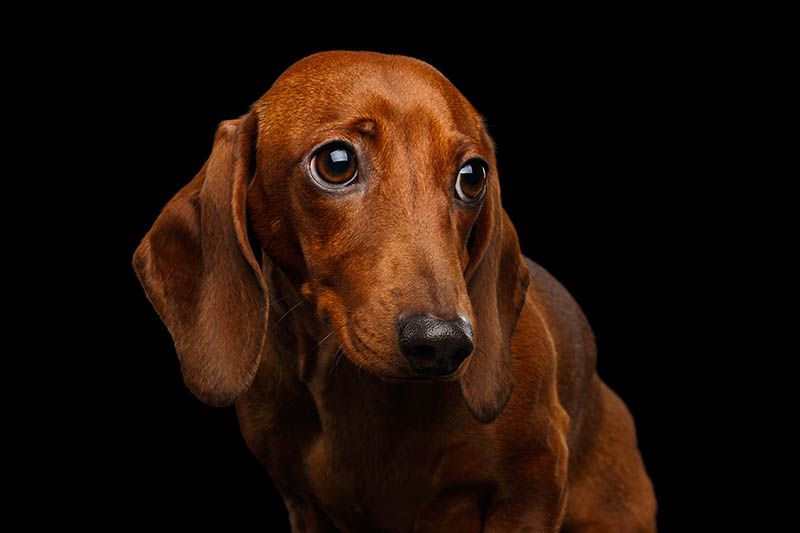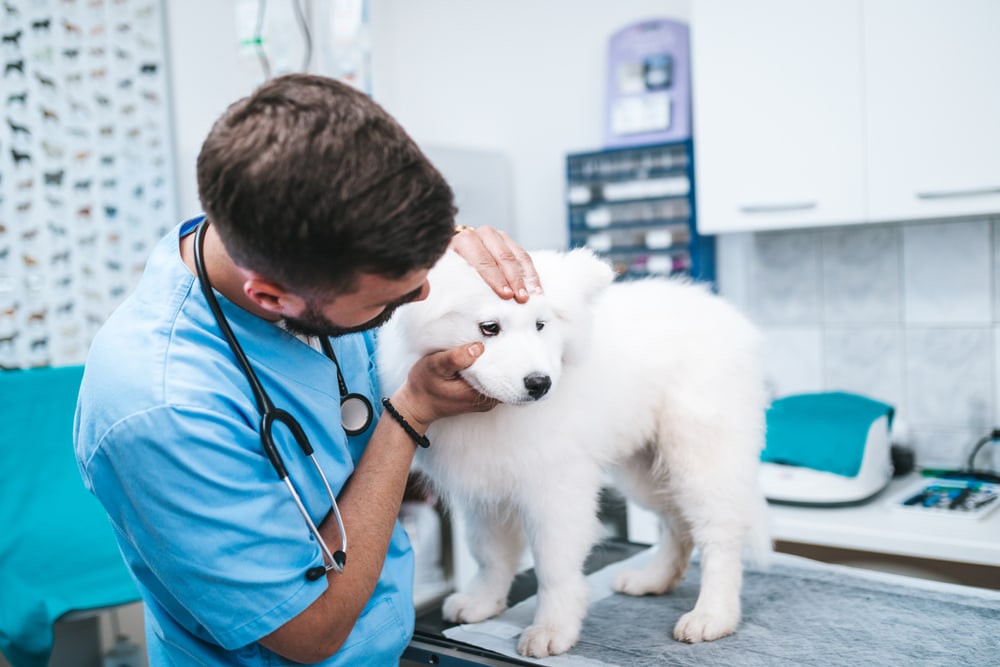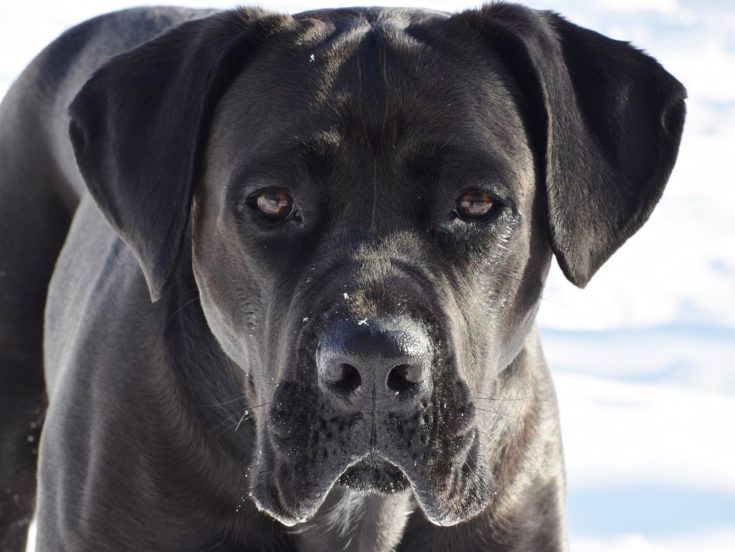Do Dachshunds Smell More Than Other Dogs? Breed Facts & Possible Causes
Updated on
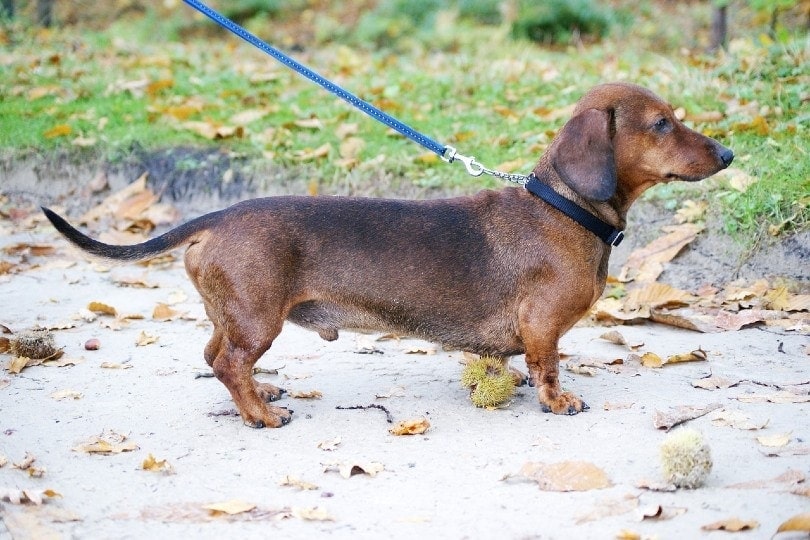
Dachshunds, or “weiner dogs,” are a familiar and popular dog breed. With their bold personalities, sense of humor, and a plethora of coat colors, these dogs can make entertaining pets. All dog owners are accustomed to dealing with a bit of an odor, but some breeds have a reputation for being stinkier than others.
Dachshunds don’t naturally smell more than other dogs, but they are prone to medical conditions that could increase their stench. If your Dachshund reeks even after a bath, it might be time to see the vet. In this article, we’ll discuss a few health issues that could make a Dachshund smell and cover the basic grooming needs of this breed.
What Could Make a Dachshund Smell?
1. Full Anal Glands
All dogs have two small sacs called anal glands on either side of their anus. The sacs produce a smelly fluid, usually expressed when the dog defecates. The scent serves as a communication tool with other dogs (usually why dogs are sniffing each other’s butts).
Dachshunds may have trouble fully expressing their glands, leading to a lingering foul, often fishy odor. The openings out of the anal sacs may get blocked due to inflammation, irritating the dog. If you’ve ever seen a Dachshund scooting its rear on the ground, it’s likely because its anal glands are full and painful. If your dog has full anal glands, you may need your vet to express them manually. Anal sacs can also become infected and cause pain and irritation.
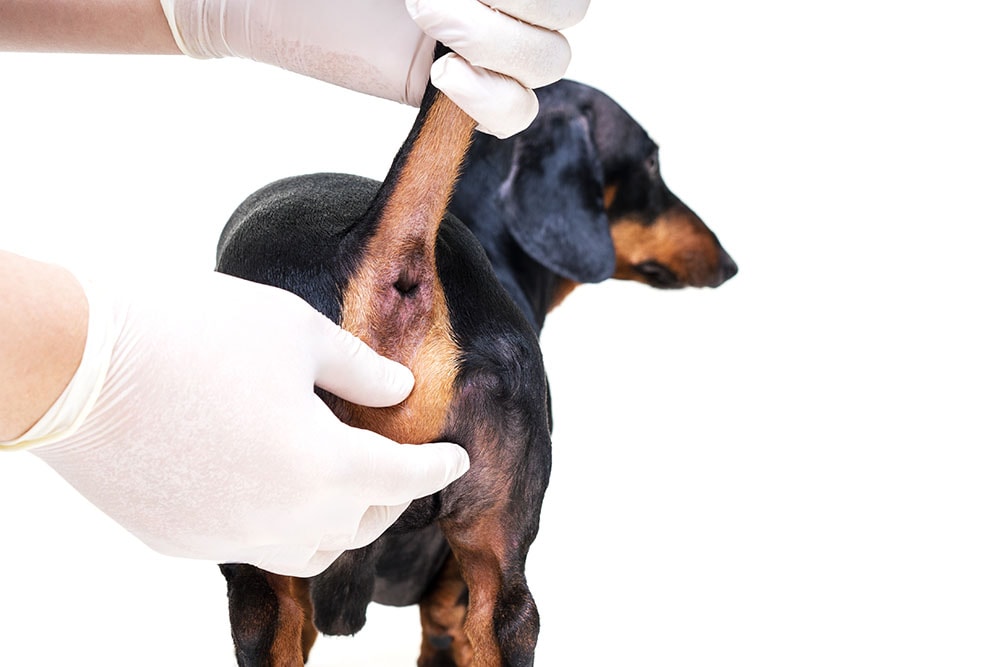
2. Ear Infections
Breeds with floppy ears, including Dachshunds, are sometimes more likely to develop ear infections. Infected ears often have a strong, yeasty smell. Other signs of an ear infection include scratching, head shaking, tilting the head, redness, swelling, and discharge.
Ear infections are painful, so don’t delay a vet appointment if you suspect your Dachshund’s smell is due to their ears. Checking and cleaning your Dachshund’s ears should be a regular part of your grooming routine.
3. Skin Infections
Several skin conditions can cause your Dachshund to become unusually smelly. Yeast infections and seborrheic dermatitis are potential culprits, but other skin conditions could also cause an odor.
Other signs of a skin infection besides a smell are itching, redness, flaky skin, and hair loss. Many skin conditions have similar signs, and it’s essential to see your vet and diagnose exactly what’s going on with your Dachshund.
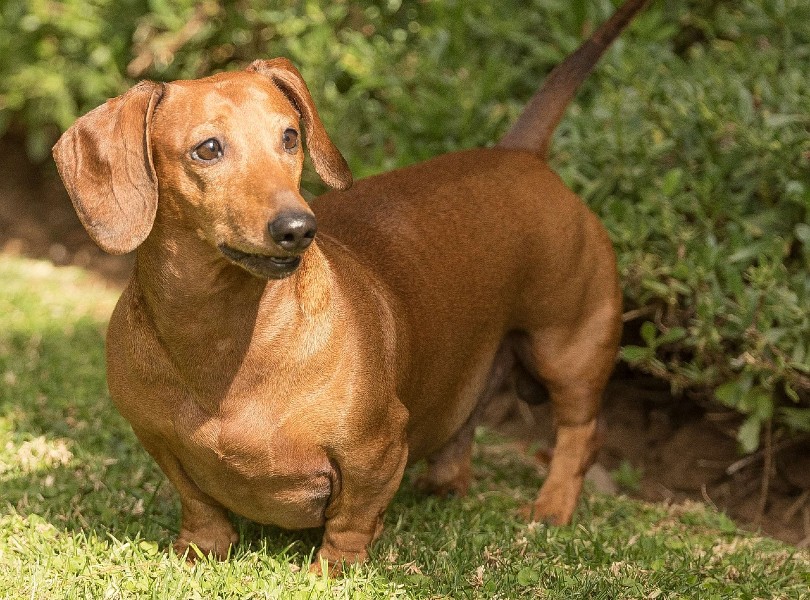
4. Dental Disease
According to some estimates, dental disease is the most common disease in dogs, impacting more than 70% of dogs older than three years. It’s also a frequent contributor to making Dachshunds smellier than usual.
Plaque forms on a Dachshund’s teeth due to the high level of bacteria in the dog’s mouth. Over time, the plaque hardens into tartar, which causes inflammation and tooth decay. It can also be a source of bacteria that breaks off into the bloodstream and travels to other parts of the dog’s body, causing infections.
Dental disease can lead to seriously stinky breath, even if your dog keeps some plaque at bay by eating dry food. Most Dachshunds require professional dental cleanings by a veterinarian. To help avoid this as long as possible, make dental care part of your regular grooming routine.
Your Dachshund’s Grooming Routine
Because Dachshunds come in three different coat lengths, their grooming needs will vary somewhat.
Short-haired Dachshunds generally require minimal brushing, perhaps once a week with a bristle brush or hound glove. Long-haired Dachshunds need more frequent brushing with a wire brush to prevent tangles. Wire-haired Dachshunds need their coats stripped (usually by a groomer) several times per year, with twice a week brushing in between.
Unless they have a medical condition requiring frequent bathing, Dachshunds can have a bath every 4–6 weeks. Too many baths can dry out their skin and coat. Check and clean their ears as needed and trim their nails about once a month.
Finally, brush your Dachshund’s teeth daily, if possible, at least twice weekly. If you can’t brush regularly, ask your veterinarian to recommend other oral health products.
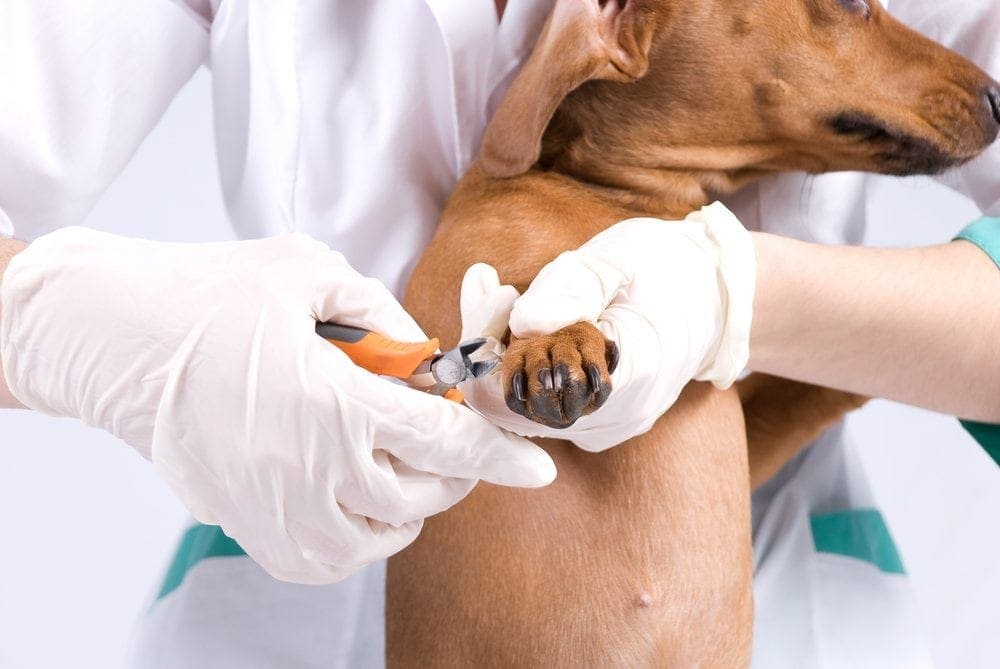
Conclusion
If you’re considering getting a Dachshund, you don’t have to worry about them making your house smell more than any other breed. A diligent grooming routine, regular bedding, and blanket washing should help keep odor to a minimum. If it doesn’t, your pup may need medical intervention. Because of their unusual body type, owning a Dachshund requires taking some special precautions, so make sure to do your research and prepare everyone in the house to help keep your pet healthy and safe.
See also:
- 10 Common Dachshund Health Issues: Symptoms, Treatment & Prevention
- Are Dachshunds Good With Other Dogs? What You Should Know!
Featured Image Credit: Sabrinakoeln, Pixabay




